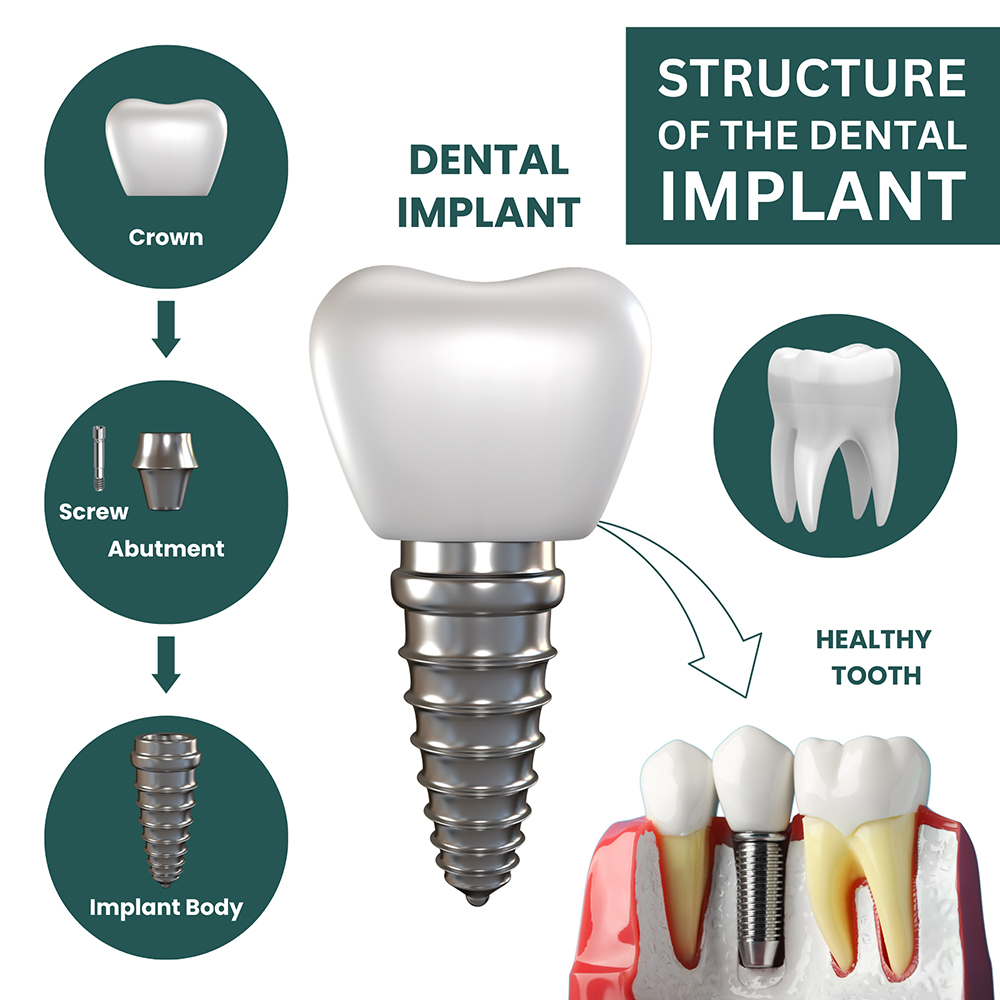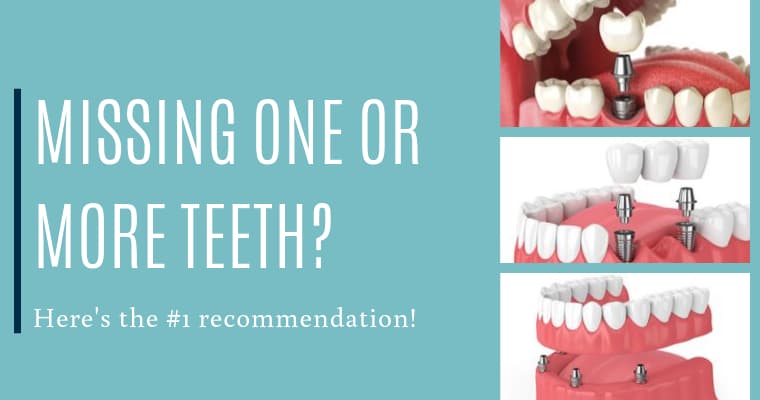Facts About Dental Sense Revealed
Facts About Dental Sense Revealed
Blog Article
Dental Sense Fundamentals Explained
Table of ContentsThe Greatest Guide To Dental SenseRumored Buzz on Dental SenseThe Main Principles Of Dental Sense Indicators on Dental Sense You Need To Know
are clinical gadgets operatively dental implanted right into the jaw to recover an individual's capability to eat or their look. They provide assistance for synthetic (fake) teeth, such as crowns, bridges, or dentures. When a tooth is shed because of injury or illness, a person can experience difficulties such as quick bone loss, defective speech, or changes to chewing patterns that result in discomfort.Dental implant systems consist of a dental implant body and oral implant abutment and may likewise include a joint addiction screw. Dental implants. The oral implant body is operatively inserted in the jawbone instead of the tooth's origin. The oral implant abutment is usually connected to the dental implant body by the abutment addiction screw and expands with periodontals right into the mouth to sustain the attached synthetic teeth
(https://pastebin.com/u/dentalsense1)Framework of The Oral Implant System picking dental implants, speak to your oral provider concerning the potential advantages and threats, and whether you are a candidate for the procedure. Things to take into consideration: Your total wellness is an important element in identifying whether you are a great candidate for dental implants, for how long it will take to heal, and just how long the dental implant may remain in place.
Smoking may affect the recovery process and lower the lasting success of the implant. The healing procedure for the implant body may take numerous months or longer, during which time you usually have a momentary abutment in place of the tooth. the oral implant procedure: Thoroughly follow the dental health directions given to you by your oral provider.
Our Dental Sense PDFs
Implant failing can result in the demand for an additional procedure to deal with or change the dental implant system. Restores the capacity to eat Restores aesthetic look Assists keep the jawbone from diminishing as a result of bone loss Preserves the health of the bordering bone and gums Aids maintain adjacent (close-by) teeth stable Enhances lifestyle Damages to surrounding natural teeth during implant placement Injury to the surrounding cells throughout surgical procedure, such as sinus perforation Injury during surgical treatment (for instance, fracture of surrounding jawbone) Poor function, such as seeming like the teeth do not bite with each other normally A feeling that the tooth hangs or turning in position resulting from an abutment screw loosening up Implant body failing (looseness of the implant body) due to systemic infection, which may be most likely in individuals with uncontrolled diabetics issues because of neighborhood infection in bone and gums supporting the implant body due to delayed healing, which may be most likely in people who smoke Difficulty cleaning the gums around the dental implant, leading to bad dental health Untreated periodontal disease Post-surgical pins and needles because of nerve impingement or damages Always inform healthcare service providers and imaging specialists that you have dental implants prior to any type of magnetic resonance imaging (MRI) or x-ray procedures.
FDA is not familiar with any kind of adverse occasions reported for MRI or x-ray treatments with oral implants. Oral implants systems are generally made of products that adhere to worldwide consensus standards of the International Company for Standardization (ISO) or ASTM International. These standards have details of what makes a safe product.

A dental implant is a framework that replaces a missing tooth. With screw-like gadgets, the surgeon inserts a dental implant right into the jawbone, and it acts as a support for a man-made tooth, called a crown.
More About Dental Sense
Some individuals are not qualified for oral implant surgery. It is for dental specialists to operate on people with: intense illnessuncontrollable metabolic diseasebone or soft cells condition or infectionIf these concerns are settled, an individual can have the surgical procedure. In, dental cosmetic surgeons avoid operating on people with: If individuals with any one of the above undertake dental implant surgery, there is a greater danger of the implant failing.

Dental implant surgical procedure is an individualized procedure. Offer you time to recover. Affix the post and last crown, bridge or denture.
Next off, your cosmetic surgeon will carefully place the dental implant right into your jaw. If your implant is near the front of your mouth, your dental professional will make a temporary tooth for you to wear till you recover.
Some Of Dental Sense
During the healing stage, your jawbone should fuse to the dental implant. This process can take More Help anywhere from three to 9 months.
Once your dental implant heals, your dentist can attach the joint (little connector blog post) and your last restoration (crown, bridge or denture). This normally takes regarding one hour to finish and may call for a second minor surgery. You shouldn't really feel any pain during your dental implant procedure because your provider will make use of medicine to numb your gum tissues.
Report this page